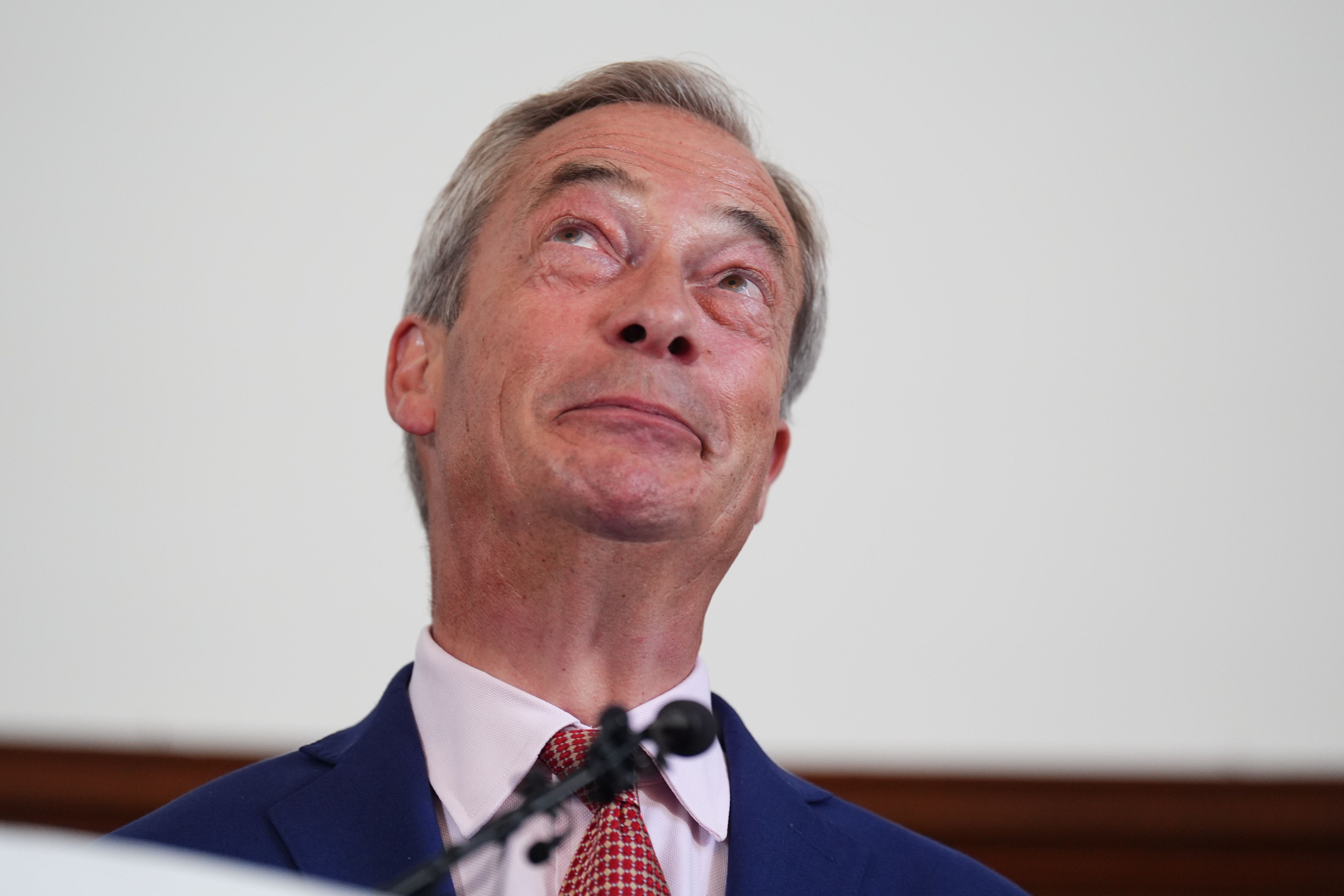The Tories should be highlighting Farage’s failures – not running scared from him
Letters to the editor: our readers share their views. Please send your letters to letters@independent.co.uk

The Conservatives are running scared of Nigel Farage and Reform’s progress in the polls.
Shouldn’t they be highlighting, amongst other things, the fact that Farage has stood for election on numerous occasions, and failed each time? Perhaps they should be concentrating on that, instead of handing the former Ukip leader more ammunition by taking him so seriously.
Dominic Smyth
Thrapston
Many who voted for Brexit will not live with its consequences
The outcome of the EU referendum was, predominantly, decided by older generations against the wishes of the young. The futures of the latter have since been shaped in part by the former, who enjoyed years of prosperity and advantage within the EU, but whose votes have denied our young the opportunity to reap similar benefits.
Eight years on, it is clear that leaving has not brought the improvements that were so naively anticipated. One of the most vaunted reasons to leave was in order to control immigration – and I hardly need pass any comment about that to make an obvious point.
The EU is far from perfect, and nations will always have their differences, but its very existence and the benefits for business, employment, research, education, travel, health, cultural exchange and, importantly, peaceful co-existence have made it worthwhile.
Many, like me, voted to remain because we saw a better future for our children and grandchildren within the European community, in a world where the sharing of common interests, freedom of movement, and the right to settle and seek work in 27 countries offered enormous opportunity. Our younger generations have lost these automatic rights, and many will, perhaps like my musician son, struggle with an unprecedented level of bureaucracy and red tape when plying their trade across Europe. They will also have to exercise a lot more patience when having to queue at the non-EU immigration control points!
Looking to the future, as those who voted Leave depart this world, or change their mind, the young will move into positions of power and have an opportunity to place the big question before the people of the United Kingdom once more.
I look forward to the day when a “Rejoin” party is formed and we may once again take our place within the European Union, having learnt the hard way that cooperation, friendship and community in this fractured world is far preferable to isolation. Sadly, I doubt that I will be here when that happens, but I live in hope.
David Platts
Newark
The problems the NHS faces will not be solved with money
The NHS needs more than just money. It needs accountability and oversight by parliament. That was the foundation of the original act establishing the NHS in 1948. However, this duty was removed in 2012 by the coalition government.
The problems the NHS faces will not be solved by simply pouring more money into it. Unless the NHS is made accountable to the secretary of state and through him to parliament to ensure that the money is spent efficiently and competently on services that are needed, injecting it with more cash will only siphon more money into the pockets of private health providers.
The Greens are the only party that is calling for a return of that statutory duty, but sadly they are doing it quietly. The Labour Party can capture the support and imagination of the public by loudly proclaiming that they, if elected, will repeal that act of parliament and reinstate that legal duty while keeping true to its fiscal rules. Back in 2012, the then shadow secretary of state, Andy Burnham, vowed to repeal the act if Labour gained power. Labour should do the same in 2024.
Fawzi Ibrahim
London
The public’s lack of interest in voting should concern all of us – including our politicians
Interest in democracy is fast waning amongst a disillusioned public. Yet successive governments remain uninterested in rekindling the public’s engagement with the means by which we decide who governs.
The 2019 Tory “landslide” meant that 56.4 per cent of those who voted were represented only on the opposition benches of the House of Commons. The malaise that this sort of disproportionate representation induces is reflected in election turnout, despite the ease of casting a ballot through the post. In the last six general elections, the faction choosing not to vote has never fallen below 31.2 per cent, and reached an all-time high in 2001 when 40.6 per cent failed to vote.
This should worry all of us – including our politicians. We need a functioning democracy in which the public has an interest and takes part. To regain that interest, individuals need hope that their vote matters. Yet, successive recent governments – of whatever party – have shown no interest in abandoning our first-past-the-post system in favour of a more engaging electoral method such as the single transferable vote.
Will the upcoming Labour “landslide” and government interest in rekindling public engagement in democracy provide the opportunity for electoral change?
Ian Reid
Kilnwick






Join our commenting forum
Join thought-provoking conversations, follow other Independent readers and see their replies
0Comments